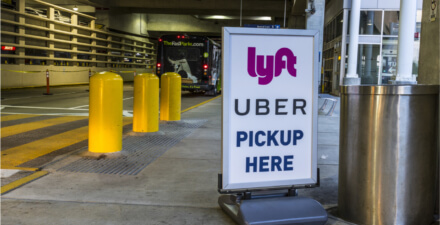Equitable Growth delivers comment letter responding to U.S. Department of Labor’s Advanced Notice of Proposed Rulemaking on classifying employees and independent contractors

The Washington Center for Equitable Growth this week delivered a comment letter responding to the U.S. Department of Labor’s Wage and Hour Division’s proposed rulemaking on how to determine who is an employee and who is an independent contractor under the Fair Labor Standards Act. The department’s proposal would reduce the risk that employees are incorrectly classified as independent contractors, thereby preventing their exclusion from key U.S. labor rights, boosting fair competition among employers, and promoting broadly shared economic growth.
Research finds that employee misclassification is associated with lower wages, disadvantages employers who correctly classify workers as employees, and hurts federal and state tax collection. Additionally, lack of protections under the Fair Labor Standards Act can result in workers earning less than the minimum wage, greater exposure to labor violations, such as wage theft, and employment discrimination, and it enables lack of access to overtime.
The U.S. Department of Labor’s proposed rule would replace and correct prior guidance, reducing the risk of misclassification and adopting an “economic reality test” that better captures whether a worker is truly leading an independent activity or working for someone else. For instance, the test considers whether a worker can truly negotiate the pay they get for providing a service, the extent to which they can accept or reject offers, the degree to which they are supervised or surveilled by an employer, and whether an employer has a say over their schedule.
The comment letter discusses key points on the impact of worker misclassification and how revised guidance on how to determine who is an independent contractor and who is an employee would improve outcomes for misclassified workers and the overall economy, including:
- Several audit and industry-specific studies find evidence that misclassification affects a substantial number of U.S. workers and is especially prevalent in low-wage sectors, such as janitorial services. The department’s proposed rule to reduce the risk of misclassification would therefore allow many already-vulnerable workers to access the labor protections to which they are entitled.
- The department’s proposed rule is likely to boost pay for many workers since there is evidence that some currently classified as independent contractors, such as ride-hail drivers, receive pay so low that they fall below both the federal and their jurisdiction’s minimum wage floor.
- In addition to not being protected by the Fair Labor Standards Act, misclassified workers are not covered by anti-discrimination law, are not eligible for Unemployment Insurance benefits or Workers’ Compensation, and cannot join a union or bargain collectively. While the proposed rule only affects coverage under the Act, allowing currently misclassified workers to access minimum wage protections and overtime regulations is even more essential, given that they are excluded from other key labor laws.
Read the full letter submitted to the U.S. Department of Labor.



